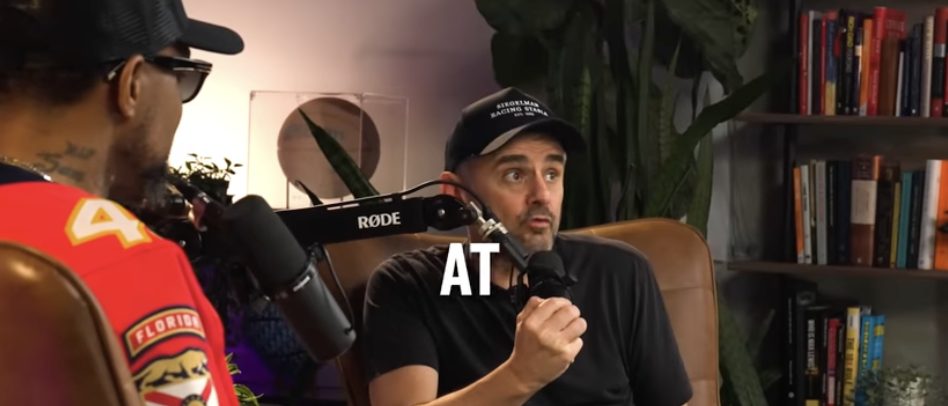I’ve been analyzing GaryVee’s content for years, and his recent take on parenting struck a chord with me. His unfiltered perspective on how we’re raising the next generation isn’t just provocative—it’s a wake-up call we desperately need. The message is clear and worth examining: Our culture of coddling is raising a generation of kids who can’t handle failure, and it’s having devastating consequences.
The Accountability Crisis
What happens when children never learn to lose? According to Gary, we’re seeing the answer play out in real-time right now. Society is “littered with children contemplating suicide, kids anxious, every kid talking about depression.” He assesses that we’ve “overcoddled the hell out of a generation.”
This isn’t just tough talk—it’s a perspective backed by what we’re seeing in workplaces and society. When young adults enter the professional world without having developed resilience, they often struggle to cope under pressure.
Coddling children by teaching them that winning and losing don’t matter fosters indifference. Indifference means nothing matters. And when issues arise, it can spiral into the belief that my life doesn’t matter.
That progression Gary outlines is frightening but logical. By trying to protect our children from every disappointment, we’ve inadvertently taught them that their actions don’t have consequences, positive or negative.
The Overcompensation Problem
Many parents today are reacting to their own childhood experiences. Gary points out that “an entire generation of parents overreacted to their own hardships” and went too far in the opposite direction. I’ve seen this pattern repeatedly in my work with brands and businesses—overcorrection often creates new problems while trying to solve old ones.
The parenting pendulum has swung from “children should be seen and not heard” to “every child deserves constant praise regardless of effort or outcome.” Neither extreme serves children well.
The key issues with modern parenting approaches include:
- Participation trophies that reward showing up rather than achievement
- Removing natural consequences that teach cause and effect
- Solving all problems for children instead of teaching problem-solving skills
- Protecting kids from any emotional discomfort
These well-intentioned practices are creating adults who struggle with basic workplace and life challenges. When parents constantly intervene, children never develop the mental resilience needed to cope with challenges.
Self-Awareness: The Missing Ingredient
When asked about his core parenting values, Gary immediately mentioned “self-aware hair” (one of his character cards) and “accountable anteater.” This focus on self-awareness and accountability stands in stark contrast to the culture of coddling and blame that many young people adopt.
The pattern is predictable: when someone has been shielded from failure and never taught to take responsibility, they default to blaming external factors. As Gary colorfully puts it, they end up “crying about everything at their job and society, blaming Trump and Biden, blaming mommy and daddy, blaming the bosses.”
Teaching children self-awareness means helping them understand:
- Their own strengths and weaknesses
- How their actions affect others
- That they have agency over their responses to situations
- That failure is information, not a definition of their worth
This kind of education requires parents to be comfortable with their children’s discomfort—something many of us struggle with.
Finding the Middle Ground
Gary acknowledges that “it’s hard to find that middle.” Parenting isn’t about being unnecessarily harsh or completely permissive—it’s about preparing children for reality while providing a secure base.
The most powerful moment in Gary’s discussion was his statement that “the number one mistake a father or mother can make for a daughter and son in competition is to let them win.” This isn’t about never letting children experience success—it’s about making sure that success is earned and therefore meaningful.
When children work for achievements, they develop confidence in their abilities to overcome obstacles. When everything is handed to them, they develop fragility and entitlement.
Building Resilience Through Reality
The alternative to coddling isn’t cruelty—it’s guided exposure to reality. Children need to experience appropriate challenges, disappointments, and failures while they’re still in the safety of a loving home. This builds the emotional muscles they’ll need for adulthood.
Gary’s approach to his VeeFriends card game exemplifies this philosophy. He’s created something that children enjoy while embedding positive messages about accountability, self-awareness, and resilience. Parents have responded enthusiastically, with many appreciating the values being taught through play.
The world needs more of this balance—fun and engagement paired with meaningful lessons about life’s realities.
The Path Forward
If we want to raise mentally strong, capable adults, we need to recalibrate our approach to parenting. This doesn’t mean returning to harsh disciplinary practices of the past, but it does mean moving away from the culture of coddling and instead allowing natural consequences and teaching children to handle disappointment.
Gary’s message of “pushing love” rather than hate is the foundation. True love for our children means preparing them for the world as it is, not as we wish it would be. It means teaching them that they have the inner resources to handle challenges, rather than believing they need constant protection.
The next time you’re tempted to shield your child from failure, remember: short-term comfort often comes at the cost of long-term capability. Our children deserve better than that—they deserve the gift of resilience.







